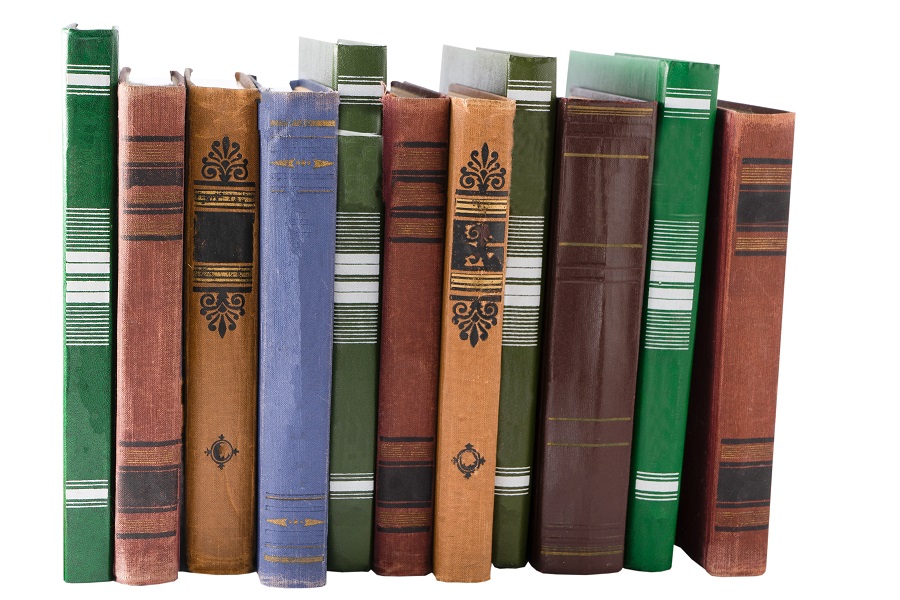SYED JAWED ANWAR
First Published: Muslims Weekly, July 9, 2004, Issue No.#227
WHEN the British first started controlling India, Muslims were the ruling power and the heart and mind of the society. They held intellectual and physical superiority over other communities. Therefore, the British East India Company instigated a policy to humiliate and degrade Muslims from all spheres of life. Governor General George Hilario Barlow (ruled from 1805 to 1807), in his letter to Lord Willington, wrote “I can’t shut my eyes to the fact that this race [Muslims] is basically our enemy; therefore, our correct policy should be to please Hindus.”
To degrade Muslims and make them ineffective and humiliated, the British devised three strategies:
- Render Muslims bankrupt and impoverished so that they must spend all their time managing basic survival needs, thereby distracting them from contemplating serious issues related to religion and politics.
- Disconnect them from their glorious past, and then it would become easy to sweep them out.
- Break their educational incline and prohibit access even to Western education. Ignorance would keep them from rising again.
This was the policy of the Company government for almost a century. The result was obvious and according to their wishes. A most civilized, cultured, developed and enthusiast nation descended to the level of illiterate, poor, and declining. A nation had been thrown from the stars to the dust.
Muslims had three main economic resources: agriculture, industry and skills, and government employment. The Company government adopted the policy to seize all these three resources from Muslims. It was a government of a Corporation, and profit was the sole purpose of governance. The complicated system of Moghal’s collection of revenues (easy for tax payers) was eliminated by Governor General Warren Hastings (1772 to 1786). Without sympathy for lands or landlords, he adopted a policy to auction the lands on annual contracts. One can imagine the level of atrocity to the farmers and harvesters by the contractors who had never gone through relationships with landowners and workers. When the next Governor General Charles Cornwallis took control of the government, he didn’t want to bother with an annual auction but instead gave the land to the contractors permanently and developed new landlords and created a new elite rich class. In the Moghal period, there were special courts to defend the rights of farmers. These courts were abolished, and peasants, land workers, and cultivators were left to the mercy of merciless new landlords. All the cases were referred to the civil courts where justice was impossible. The new ruling class imposed dozens of taxes, including “kitchen tax” (on cooks) and “beard tax” (on bearded men). Even taxes were collected in the name of “Durga Puja” and “Kaali Puja” (Hindu festivals) from Muslims. (British Policy and Muslims in Bengal by A. R. Mullick.)
Resident Delhi (Mayor of Delhi) has commented that there would be no other country in the world where there was such atrocity at that level where few people got all the lands by bribing and by using different wrong means.
The new rich class of Sen, Das, Gupta, Banerjee, Chatterjee, Mukharjee, and Tagore emerged and were the products of the new arrangement.
In the Islamic periods and Muslim rules, there was an established tradition that government, rich people, and businessmen were to allot properties and build trusts in favor of Ulema (scholars), Fuqha (interpreters of Islamic laws), Mashaikh (trainers of morality and characters), and Durvesh (a person who has assigned himself to do a task for the benefit of humanity) so that these people with economic freedom can educate, train, and develop the standard of the society. Muslim governments never formed a separate education department; instead, education was a self-developed department established with participation from all the members of the society and had a complete freedom and noninterference from the government. Muslims in general showed big hearts to donate for the cause, particularly education. Thousands of institutions were working under these trusts and tax exempted properties. Scholars and teachers had no need to worry. British government spotted the high quality and standards of the Muslim educational system and the leading and dominating role of the Ulemas in society. They also knew the respect of these ulema was because of their economic freedom and independence.
Governor General Richard Wellesley passed “Resumption Act” in 1818 to obtain control of all the trust properties and lands from ulema. Lord William Cavendish-Bentinck passed another “Resumption Act” in 1828 to get all remaining properties. The Bengal residency of that time extended from Burma to East Punjab. A new department “Department of Resumption” had been formed, and a collector, deputy collector, and other officials were appointed only for that purpose. The spies of the agency were spread out everywhere to search out any property that supported Muslim education. False and paid witnesses were disseminated and forced to give false statements about these properties. According to William Hunter, it was the deathblow of Muslims Education System. (Information from Our Indian Mussalman by W.W. Hunter, p-177.)
The class of Ulema was completely destroyed, and ultimately the high society of Muslims dropped to its bottom level. Lord Minro and Duke of Willington said that it was an act to create enmity of Indians and make them beggars. However, from these “resumptions,” the Company got annual three hundred thousand pounds income.
Several groups of the Indian Muslim society were industrially and technologically advanced. The textile industry of Bengal and Bihar was most advanced industry. The Company government did severe atrocities and made several oppressive laws to destroy this industry completely. The textile industries of Manchesterf lourished only after the destruction of the Indian textile industry. Company government forced julahas (Muslim textile workers and owners) to make clothes according to the government’s required quantity, required quality, and at a fixed government price. Julahas fell from owning their own factories to being slave workers and bonded laborers of the East India Company government. They were whipped, and their properties were confiscated if they didn’t follow the new rules. Several Julahaas cut their own thumbs in order to be excused for disability.
All the other industries were also destroyed in the same pattern. The Western historians lie when they say that India was an agricultural nation, and the British made them industrialized. As a matter of fact, they De-industrialized first in order to rebuild an exploitative system of capitalism and profitism where workers didn’t get any benefit from the production, and capitalists and governments had full control over their enslaved industrial workers.
A large number of Muslims were employed in military, civil, and court systems. The Company government took measures to oust them from all these jobs. Governor General Warren Hastings (rule 1773 to 1786) abolished the speedy “Revenue Courts” established all over India in the Moghal rule. Next Governor General Charles Cornwallis abolished the department of village police (security), thereby making law and order worse and putting Muslims out of work. Muslims were the overwhelming majority in the military, but they were limited because the Company government didn’t trust them. Muslims could be employed as ordinary soldiers but not officers; they were not allowed to have any noble civil or military position.
The judges of the Islamic era were highly respected persons, but they became degraded to the lowest level. Most of these posts were contractual and only for profit. Governor General Henry Hardinge, by an order, closed the door of employment to anyone not fluent in English. After this order, a Muslim who might be a scholar in all knowledge, but didn’t know English, couldn’t get any job. New Chatterjees and Mukherjees, however, got high positions just because they knew a little English or just alphabets of English.
In 1860, Sadar Adalat was converted to High Court, and all the proceedings were changed from Urdu to English. In 1864, the government passed Qazi Act; after that, there was no need of Muslim judges even for the personal laws of Muslims (divorce, inheritance, etc.), and the lawyers became jobless. Sir Syed Ahmed Khan said, “Go and see the condition of those who have Eastern knowledge [lawyers]; flies murmur on their mouths.”
In 1812, the Company government imposed “house tax” that was unknown to the citizens of India. Muslim governments of past never imposed such a tax on them. There was a big turmoil in the society over the tax, and it was withdrawn after a widespread revolt, particularly in Bareili.
A historian commented on the Company rule, “They made pacts, and then broke them and changed them. They plundered and killed the people and formed a large state within a century.”
Cross Waite writes, “It seems the world has been created as marketplace and job place for one nation.”
Other Europeans were never allowed to enter India after the British occupation. A missionary, Richter has written, “The government of the Company never allowed any European so that they couldn’t know the colonial style of government. There were many things in the government that had to be hidden from the eyes and ears of the European.”
The year 1857 was when there was a final revolt, mutiny, freedom movement, and Jihad against the occupying power. The Company government had succeeded to crush the revolt completely. Ulema was the main target of the government’s anger. About seven thousand ulemas, scholars, and education experts were martyred; hundreds of them were deported to Andaman Islands (called black water punishment). Several ulema escaped and migrated to plain of Nepal and Harmain Sharifain. (In Makkah and Madina, several Madrasahs inSaudi Arabia still exist as evidence.)
There was complete and final destruction of a civilized nation by a group of barbarians.
In Britain there was no scarcity of gentlemen, but they didn’t travel or venture outside the country or involve themselves in evil deeds of the Company. The Company government brought only the third-class people and hard-core criminals from England to employ and rule over India. Criminals were released on a contract to serve outside. The younger criminals became high officials of the occupied country. East India Company always discouraged the appointment of any true gentleman to the Company in order to preserve the interest of its shareholders. (Information from The Law of Civilization and Decay by Brooke Adam).
Finally, after the defeat of freedom struggle in which a lot of British soldiers were killed along with Indians, the Queen’s government of Britain took control of India, and that was the end of the Company government. The life of Muslims was eased a little bit in the new setup. However, the discriminatory and biased policy towards Muslims continued until 1947, the year of the end of the occupation.
Louis Mountbatten was the last viceroy of occupied India. He was criminal number one from Muslim point of view because he divided India in a way that the Muslim sufferings were multiplied and left a never-ending misery on them. He was the person who facilitated the situation where the Muslim-ruled states in the British period, like Hyderabad Deccan,Bhopal and Junagarh, and Muslim-majority states, like Kashmir, were annexed and controlled by India.Pakistan was created from divisiveness, one in the East and another in the West; there was a seed of division from the beginning. The Muslims of India are now divided in three countries with Hindu dominance of the region. This was the plan of Mountbatten.
To know the character of Lord Mountbatten, review this news item of November 18 1972: “Lord Mountbatten, the last British Viceroy of India and the uncle of Prince Philips the husband of the Queen, is convicted today for adulterating milk with water while he sold it from his Cant Farm (South East England) [Pakistan Times, Lahore November 19, 1972].
(This is a series of columns for the understanding of the history of centuries old Madrasa and Islamic Education System in South Asian perspective published in the Muslims Weekly, New York, USA, in series of the weekly column “Personal Notes.” Syed Jawed Anwar can be reached at jawed@seerahwest.com)







